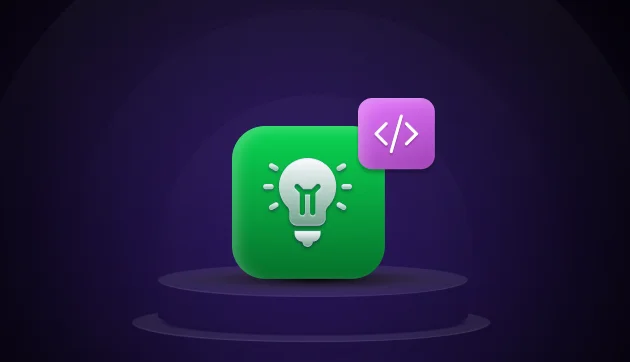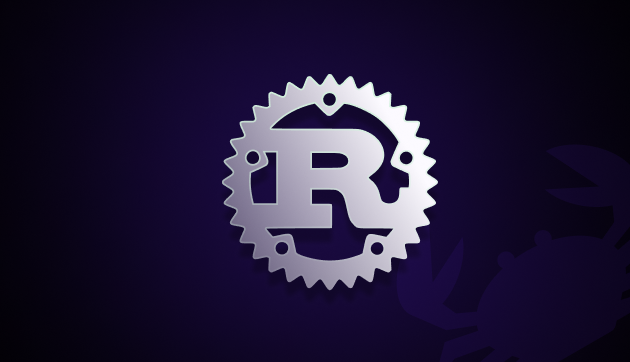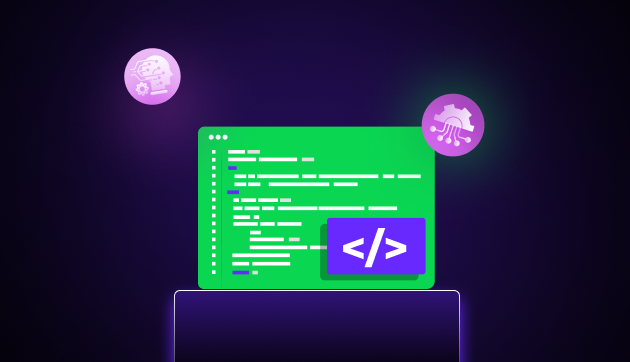![Top Electrical Project Ideas for Engineering Students [2025] 1 Post thumbnail](https://www.guvi.in/blog/wp-content/uploads/2024/05/1_feature.webp)
Top Electrical Project Ideas for Engineering Students [2025]
Mar 21, 2025 5 Min Read 34436 Views
(Last Updated)
Practical projects are an important part of your educational journey. They not only reinforce theoretical knowledge but also provide a platform to innovate and solve real-world problems.
In this post, we will explore various project ideas tailored for different skill levels—from simple circuits perfect for beginners to advanced systems that integrate cutting-edge technologies. These projects are designed to spark your creativity, enhance your problem-solving skills, and prepare you for a successful career in electrical engineering.
So, grab your multimeter, fire up your soldering iron, and let’s get ready to build some exciting projects that could light up your resume and maybe, quite literally, power the future!
Table of contents
- What is Electrical Engineering?
- Top Electrical Project Ideas for Engineering Students
- Basic Electrical Projects for Beginners
- Intermediate Projects for Skill Enhancement
- Advanced Projects for Experienced Students
- Innovative Projects for Cutting-Edge Technology
- Conclusion
- FAQs
- What are the best electrical projects for beginners?
- How can intermediate students enhance their skills through projects?
- What advanced projects can help students prepare for a professional career in electrical engineering?
What is Electrical Engineering?
Electrical engineering is a branch of engineering that primarily concerns the study, design, development, and application of technologies related to electricity, electronics, and electromagnetism. It is a diverse field that can involve everything from small microchips to large power station generators.
Also Read: Top 5 Tech Careers of the Future [2025]
Here are some key aspects of electrical engineering:
- Circuit Design: Electrical engineers design and develop electrical circuits used in various applications, from small household appliances to large-scale electrical power systems.
- Electronics: This subfield focuses on the behavior and movement of electrons in semiconductor materials, essential for creating electronic devices, including diodes, transistors, and integrated circuits.
- Power Engineering: Engineers in this specialty focus on the generation, transmission, distribution, and utilization of electric power. They work on various technologies, from renewable energy systems like solar panels and wind turbines to traditional coal and nuclear power plants.
- Control Systems: This area involves designing controllers that monitor and regulate the behavior of machines and systems. It includes everything from simple home heating systems to complex flight control systems in aircraft.
- Telecommunications: Electrical engineers also develop systems for transmitting information across channels, such as fiber optics, wireless communication networks, and satellite communications.
- Signal Processing: Engineers process signals, such as audio, video, and data, ensuring accurate communication and functionality in systems like radios, televisions, and mobile phones.
- Instrumentation Engineering: This specialty focuses on the design of devices that measure, monitor, and control industrial operations. Instrumentation engineers often work in industries that require precise control of conditions such as temperature, pressure, and humidity.
Electrical engineering requires a strong foundation in mathematics and physics and typically involves using sophisticated software and tools to simulate, analyze, and solve complex problems. It is an ever-evolving field with innovations constantly emerging, making it a dynamic and exciting area of study and work.
Ready to learn robotics? Enroll in GUVI’s Arduino Course to gain hands-on experience and elevate your skills. Start your journey today!
Now that we understand what electrical engineering is, let’s explore some top project ideas for engineering students.
Top Electrical Project Ideas for Engineering Students
Electrical engineering students are always looking for innovative projects that challenge their skills and expand their knowledge. Here’s a list of project ideas across various levels of expertise:
Basic Electrical Projects for Beginners
These projects are ideal for those just dipping their toes into the vast ocean of electrical engineering:
1. Simple LED Circuit
Design and implement a basic circuit that lights up an LED. This project is fundamental for understanding electrical components and how current flows through a circuit. You’ll use a resistor to control the amount of current that flows through the LED, protecting it from high voltage.
Features
- Learn to read resistor color codes.
- Understand the basics of circuit design.
- Experience hands-on soldering and assembly.
- Explore the relationship between voltage, current, and resistance.
- Build a foundational skill set for more complex projects.
![Top Electrical Project Ideas for Engineering Students [2025] 2 Simple LED Circuit](https://www.guvi.in/blog/wp-content/uploads/2024/05/2_simple_led_circuit.webp)
Also, Explore 8 Exciting Project Ideas for Final Year B Tech Students [2025]
2. Battery Tester
Build a simple device that measures the remaining charge in batteries. This project introduces you to voltage measurement techniques and basic electronic components. You will create a circuit that can connect to different types of batteries and display their charge level, teaching you about battery chemistry and electricity basics.
Features
- Understand different battery types and their characteristics.
- Learn to use a multimeter for measuring voltage.
- Develop skills in designing a user interface (simple analog or digital display).
- Gain practical knowledge of electrical safety.
- Enhance troubleshooting and problem-solving skills.
![Top Electrical Project Ideas for Engineering Students [2025] 3 Battery Tester](https://www.guvi.in/blog/wp-content/uploads/2024/05/3_battery_tester.webp)
3. Water Level Indicator
Create a circuit that detects and indicates the water level in a tank. This project involves sensors that detect water levels and send signals to an indicator or an alarm. It’s great for understanding sensor integration and signal processing.
Features
- Implement simple sensor technology.
- Design circuits with practical applications in everyday life.
- Learn about conductivity and sensor calibration.
- Develop a visual or auditory output based on sensor input.
- Enhance circuit design and debugging skills.
![Top Electrical Project Ideas for Engineering Students [2025] 4 Water Level Indicator](https://www.guvi.in/blog/wp-content/uploads/2024/05/4_water_level_indicator.webp)
Also Read: Best Project Ideas for Robotic Applications – Including All 3 Levels [2025]
Intermediate Projects for Skill Enhancement
For students with a grasp of the basics and ready to enhance their skills, these projects provide a deeper understanding:
1. Solar Charger
Design a small solar charger for mobile devices. This project teaches you about renewable energy sources, specifically solar power, and how to convert and store this energy efficiently using a circuit. You will also explore the design of charge controllers and battery management systems.
Features
- Gain insight into solar panels and photovoltaic cells.
- Understand energy conversion and power regulation.
- Explore battery management systems.
- Design a portable and environmentally friendly device.
- Apply knowledge in real-world applications like camping or emergency power.
![Top Electrical Project Ideas for Engineering Students [2025] 5 Solar Charger](https://www.guvi.in/blog/wp-content/uploads/2024/05/5_solar_charger.webp)
Also Read: 10 Innovative Project Ideas for Students to Boost Creativity and Skills
2. Infrared Security System
Develop a security system based on infrared (IR) technology. This project involves setting up an IR transmitter and receiver that triggers an alarm when the line of sight is broken. It’s an excellent introduction to security systems and electronic monitoring.
Features
- Learn about IR sensors and their applications.
- Implement a basic security system logic.
- Develop skills in circuit complexity and layout.
- Understand the basics of electronic security measures.
- Explore practical applications in home and business security.
![Top Electrical Project Ideas for Engineering Students [2025] 6 Infrared Security System](https://www.guvi.in/blog/wp-content/uploads/2024/05/6_infrared_security_system.webp)
3. Digital Voltmeter
Construct a digital voltmeter to measure electrical potential. This project will provide you with the opportunity to work with digital displays and precision measuring tools. You will gain experience in embedded system programming and calibration.
Features
- Develop an understanding of ADC (Analog to Digital Converters).
- Learn about microcontroller programming.
- Gain skills in designing electronic measurement instruments.
- Understand calibration and accuracy in electronic devices.
- Build a useful tool for other electronics projects.
![Top Electrical Project Ideas for Engineering Students [2025] 7 Digital Voltmeter](https://www.guvi.in/blog/wp-content/uploads/2024/05/7_digital_voltmeter.webp)
Know More: Top 10 Coding Project Ideas for Beginners
Advanced Projects for Experienced Students
These projects are suited for students who have a solid foundation and are looking to apply their knowledge in creating more sophisticated systems:
1. Home Automation System
Use IoT technology to create a system that controls various home appliances remotely. This project incorporates wireless communication, user interface design, and possibly cloud computing to manage and monitor home devices from a smartphone or a computer.
Features
- Explore IoT connectivity and network protocols.
- Implement user interface design for device control.
- Learn about cloud services and data security.
- Develop cross-platform integration (e.g., compatibility with iOS, Android, and web).
- Enhance skills in automation and smart home technology.
![Top Electrical Project Ideas for Engineering Students [2025] 8 Home Automation System](https://www.guvi.in/blog/wp-content/uploads/2024/05/8_home_automation_system.webp)
Also Read: Top 17 Best IoT Project Ideas
2. Wireless Power Transfer System
Design a project to transfer electrical energy without physical connectors. This involves understanding and applying principles of magnetic resonance or inductive coupling to transmit power over a distance. It challenges you to think about efficiency and safety in energy transfer.
Features
- Explore the principles of electromagnetic induction.
- Design circuits for high efficiency and safety.
- Understand the challenges of wireless energy transmission.
- Innovate in reducing energy loss.
- Apply to practical applications like charging stations and medical devices.
![Top Electrical Project Ideas for Engineering Students [2025] 9 Wireless Power Transfer System](https://www.guvi.in/blog/wp-content/uploads/2024/05/9_wireless_power_transfer_system.webp)
Explore Project-Based Learning: Smart Ideas and Important Tips To Implement It [2025]
3. Smart Energy Meter
Develop an energy meter that monitors real-time energy usage and communicates this information to a smartphone. This project integrates data collection, real-time data processing, and wireless communication. It’s geared towards promoting energy conservation and helping users manage their power consumption more effectively.
Features
- Implement real-time data processing and analytics.
- Learn about wireless communication protocols.
- Gain experience in user interface design for apps.
- Promote energy efficiency and conservation.
- Develop a scalable solution for residential or commercial use.
![Top Electrical Project Ideas for Engineering Students [2025] 10 Smart Energy Meter](https://www.guvi.in/blog/wp-content/uploads/2024/05/10_smart_energy_meter.webp)
Also Read: Best 15 Product-based Companies for IoT Solutions Architects in India
Innovative Projects for Cutting-Edge Technology
For students interested in the cutting edge of technology and potentially contributing to groundbreaking advancements:
1. Robotics Arms
Design and build a robotic arm using stepper motors and sensors. This project involves programming the arm for precision movements and integrating sensors to enhance functionality, such as object recognition or automated handling tasks.
Features
- Learn to program stepper motors for precise control.
- Integrate various sensors for environmental interaction.
- Develop programming skills in robotics control software.
- Explore the applications of robotic arms in industry and medicine.
- Gain experience with real-time system response and adjustments.
![Top Electrical Project Ideas for Engineering Students [2025] 11 Robotics Arms](https://www.guvi.in/blog/wp-content/uploads/2024/05/11_robotics_arms.webp)
Also Read: 4 Best Programming Languages For Robotics You Should Learn
2. Electric Vehicle Charger
Develop a charger for electric vehicles that can be monitored and controlled remotely. This project involves the design of high-power electronic circuits and the integration of communication modules for remote monitoring.
Features
- Understand the requirements for high-power charging systems.
- Learn about electric vehicle battery specifications and charging needs.
- Implement IoT for remote monitoring and control.
- Design user-friendly interfaces for monitoring charging status.
- Explore smart grid integration for optimal power usage.
![Top Electrical Project Ideas for Engineering Students [2025] 12 Electric Vehicle Charger](https://www.guvi.in/blog/wp-content/uploads/2024/05/12_electric_vehicle_charger.webp)
3. AI-Powered Load Forecasting
Use machine learning algorithms to predict electricity demand in a network. This project combines data analytics with machine learning to forecast load, helping to optimize energy distribution and prevent overloads.
Features
- Collect and analyze historical data on electricity usage.
- Implement machine learning models to forecast future demands.
- Gain insights into big data processing frameworks.
- Explore the impact of accurate forecasting on energy conservation.
- Develop a scalable system that can be applied to various grid sizes.
![Top Electrical Project Ideas for Engineering Students [2025] 13 AI-Powered Load Forecasting](https://www.guvi.in/blog/wp-content/uploads/2024/05/13_ai_powered_load_forecasting.webp)
Ready to learn machine learning? Transform your career with GUVI’s expert-led Machine Learning course. Gain hands-on experience and industry-relevant skills to power up your data journey. Don’t miss out on this opportunity to future-proof your career! Enroll now!
These projects not only enhance your technical skills but also prepare you for real-world challenges in electrical engineering. Each project offers a valuable opportunity to practice engineering principles and innovative thinking.
Also, Explore the Top 7 Important Engineering Project Ideas Using ChatGPT
Conclusion
Take the leap, explore uncharted territories with your projects, and remember that every circuit designed, every code written, and every system implemented brings you one step closer to becoming a proficient and innovative electrical engineer. Embrace these challenges, and let your curiosity lead you to discover new solutions and technologies that could one day change the world.
Also Explore: Top 9 Cutting-Edge Electronic Projects for Engineering Students
FAQs
For beginners, projects that focus on basic principles and simple implementations are ideal. Good starting points include building a simple LED circuit, creating a battery tester, or developing a water level indicator.
Intermediate students should focus on projects that challenge their understanding and allow them to apply their knowledge more broadly. Projects like designing a solar charger, developing an infrared security system, or constructing a digital voltmeter can be very beneficial.
Advanced students should consider tackling projects that involve complex systems and incorporate modern technologies. Building a home automation system using IoT, designing a wireless power transfer system, or developing a smart energy meter are excellent projects.
These require an understanding of current technologies, system integration, real-time data handling, and scalability.





















![How to Make Amazing Projects for Internships and Placements? [2025] 14 projects for internships and placements](https://www.guvi.in/blog/wp-content/uploads/2024/04/Feature-Image-2.png)









its very help full for me ,, thanks guvi blog